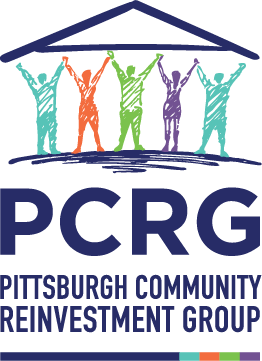Inclusionary Zoning (IZ) has steadily emerged as a critical policy tool for addressing the affordable housing crisis in Pittsburgh. The concept is simple: when developers build new housing (over 20 units), a portion of those units must be reserved as affordable for low- and moderate-income households. While common in cities across the country, IZ has been piloted in several Pittsburgh neighborhoods, including Lawrenceville, and is increasingly recognized nationwide as a proven strategy to balance growth with affordability.
Background: How IZ Took Root in Pittsburgh
Pittsburgh’s first IZ policy was established as an overlay district in Lawrenceville, following years of rising rents and displacement pressures on long-term residents. The pilot then extended to Bloomfield, Polish Hill, and parts of Oakland — neighborhoods experiencing similar affordability challenges.
These early IZ districts have provided valuable lessons: the policy can deliver affordable units without halting development, and the demand for affordability extends far beyond a handful of neighborhoods.
The Urgency of Action
The urgency is clear: Pittsburgh has lost more than 10,000 Black residents over the past decade, many driven out by rising housing costs and limited affordable options. Without stronger policies like IZ, displacement will continue to undermine the city’s diversity, cultural fabric and equity goals.
The Housing Needs Assessment: A Call for Citywide Action
The City’s recently completed Housing Needs Assessment (HNA) what many residents and advocates already know: Pittsburgh requires thousands of affordable units, particularly for households earning at or below 50% of Area Median Income (AMI). For many families, services workers, union members, and seniors, housing at this level is the difference between stability and displacement. Expanding IZ citywide is a critical step to meet this demand and ensure affordability isn’t confined to a few neighborhoods.
Balancing Development and Affordability
Developers and industry groups often argue that IZ could discourage new construction or drive developers elsewhere. However, experience from Pittsburgh’s pilots and other cities proves otherwise.
In fact, IZ projects are often paired with public incentives — such as tax abatements, density bonuses, and expedited permitting — that allow developers to maintain profitability while contributing to the city’s affordability goals. This balance of public policy and private investment demonstrates the shared responsibility to keep Pittsburgh livable and inclusive.
PCRG’s Research and Advocacy
PCRG’s Inclusionary Zoning study found that IZ is most effective when paired with robust incentives and clear standards that create predictability for developers and project funders.
Our findings also show that IZ is not a silver bullet but an essential part of a broader affordability strategy. This must also include preserving existing affordable housing, expanding rental assistance and strengthening community-based development.
Countering Fearmongering in the Development Class
Unfortunately, some in the development community continue to rely on fearmongering tactics, claiming that IZ will deter investment or halt housing production. The evidence does not support these claims. Instead, IZ ensures that as Pittsburgh grows, it grows equitably, making affordability a central consideration rather than an afterthought or solely a nonprofit responsibility.
Local Government’s Responsibility to Step Up
At its core, Inclusionary Zoning is about local government taking responsibility for expanding the city’s affordable housing supply. For too long, the burden has fallen disproportionately on non-profits, as well as state and federal programs.
A citywide IZ policy signals a shift toward shared accountability: as the private market builds new housing, the policy ensures a portion remains affordable. This approach not only increases housing supply but also helps ensure working families, seniors, and long-term residents can remain in the neighborhoods they call home.
Why September 10 Matters
The next step in this long conversation is perhaps the most critical: Pittsburgh City Council will hold a Public Hearing on Inclusionary Zoning on September 10. This hearing is the community’s opportunity to speak directly to Pittsburgh City Council to emphasize the importance of citywide IZ and the need to prioritize households at or below 50% AMI.
A strong public turnout will send a clear message that Pittsburgh wants a housing future that is equitable, affordable and sustainable. If you care about affordability, displacement, and the future of your neighborhoods, we need your voice on September 10th.
Your Voice Matters
It’s time to make inclusionary zoning citywide. Use your power and tell the city council to pass inclusionary zoning now.
Tell City Council to Keep PGH Home & Pass Inclusionary Zoning NOW!
Wednesday, September 10 | 2 p.m.
Contact Your City Council Representatives
Join a Policy Power Hour or PCRG Working Group to stay connected and involved.
Questions? Contact PCRG Director of Policy Chris Rosselot at crosselot@pcrg.org.

